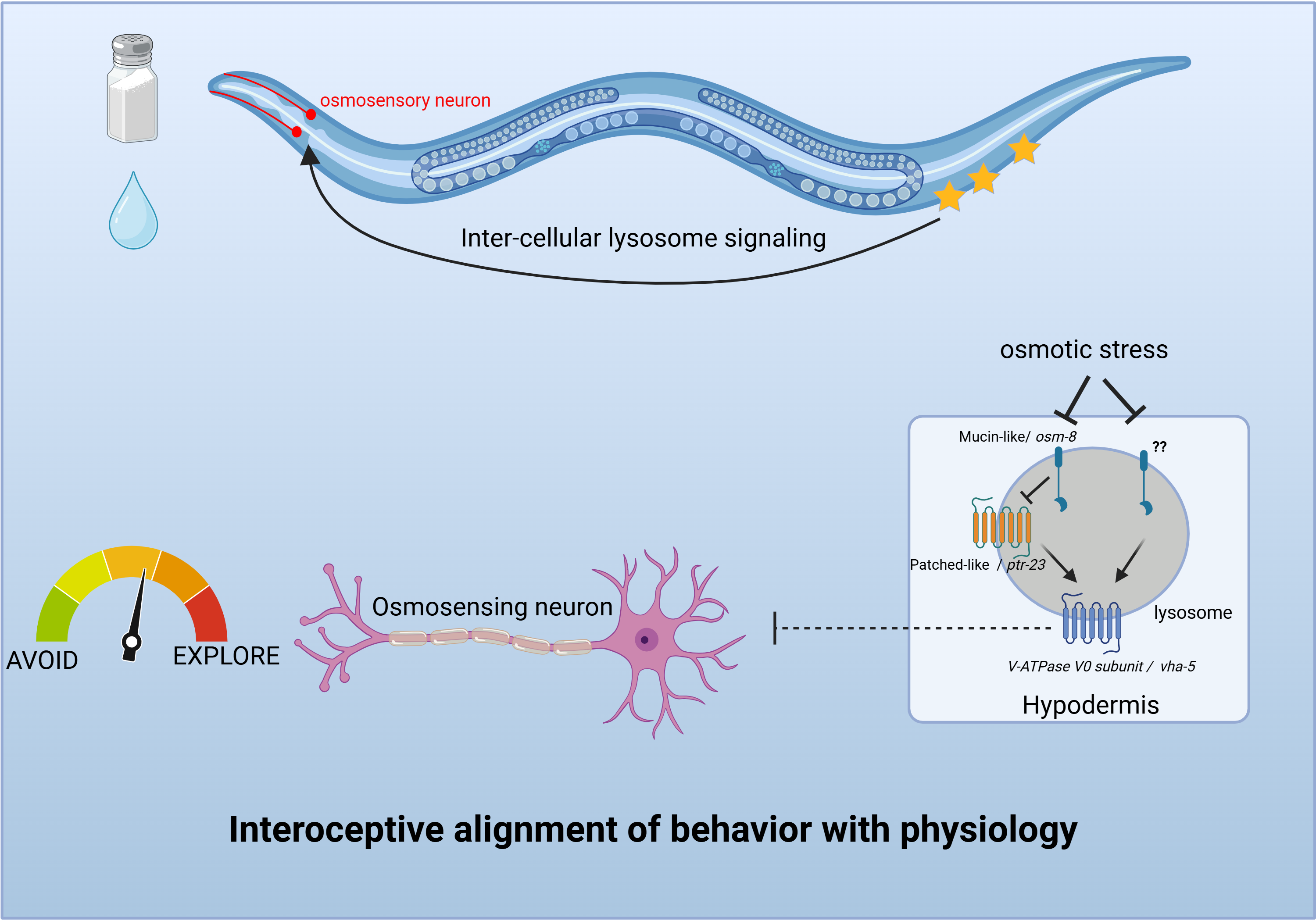You are here
Skin to Neuron Communication Links Stress Adaptation to Stress Avoidance Behavior
Speakers
Abstract
Changes in physiological states, such as starvation, drive changes in behavior that reestablish homeostasis, such as eating. This involves physiologically evoked signals from peripheral tissues that alter nervous system function. Beyond the gustatory signals that regulate feeding behavior, the signals and systems that link other physiological states to behavior are poorly described. The model system C. elegans provides a powerful, integrated system to understand the mechanisms by which physiological states impact nervous system function. I will present new data showing how a physiological pathway that responds to stress in the skin inhibits a neurocircuit that mediates behavioral avoidance towards that same stress signal. I will also show how genetic activation of this pathway in the absence of any changes in the environment is sufficient to drive this behavioral change. This shows that worms monitor their internal physiological state to modify sensory processing, i.e. worms possess interoception. Together, these data suggest that stress signaling in peripheral tissue links stress physiology to stress avoidance behavior. 

